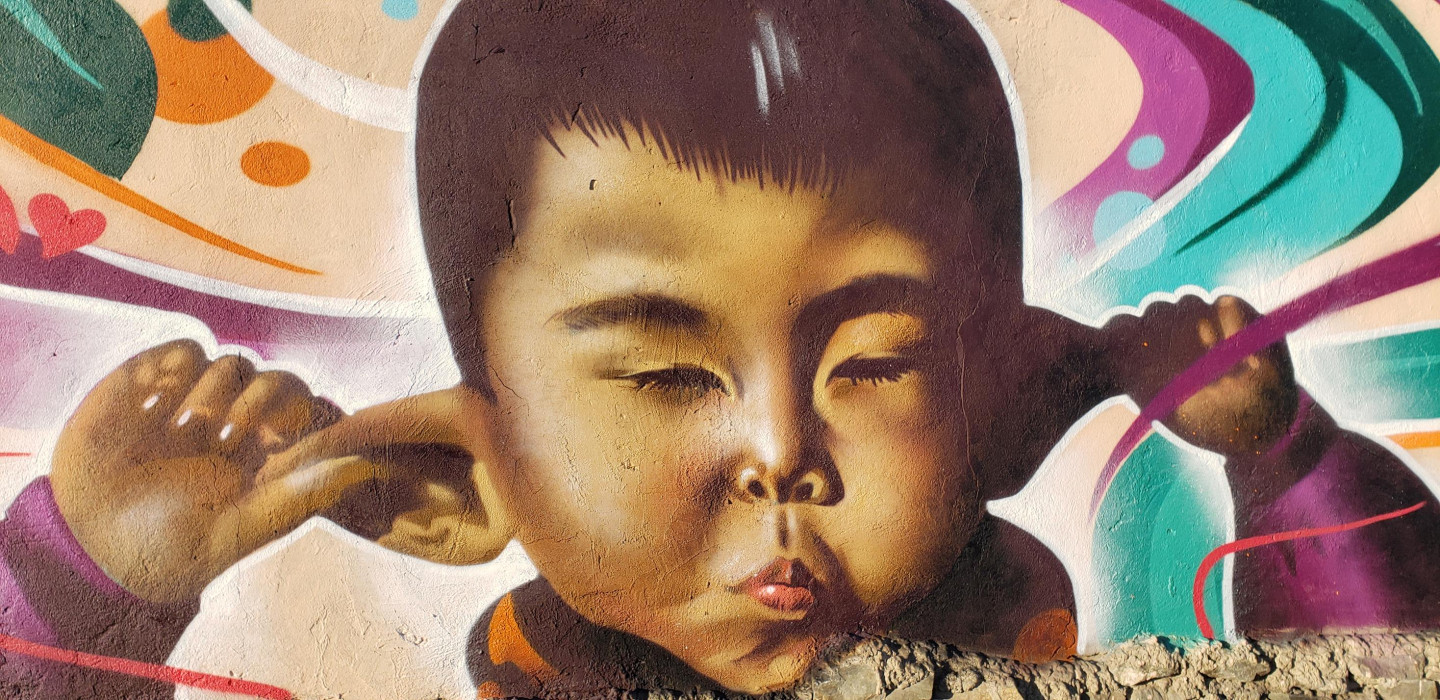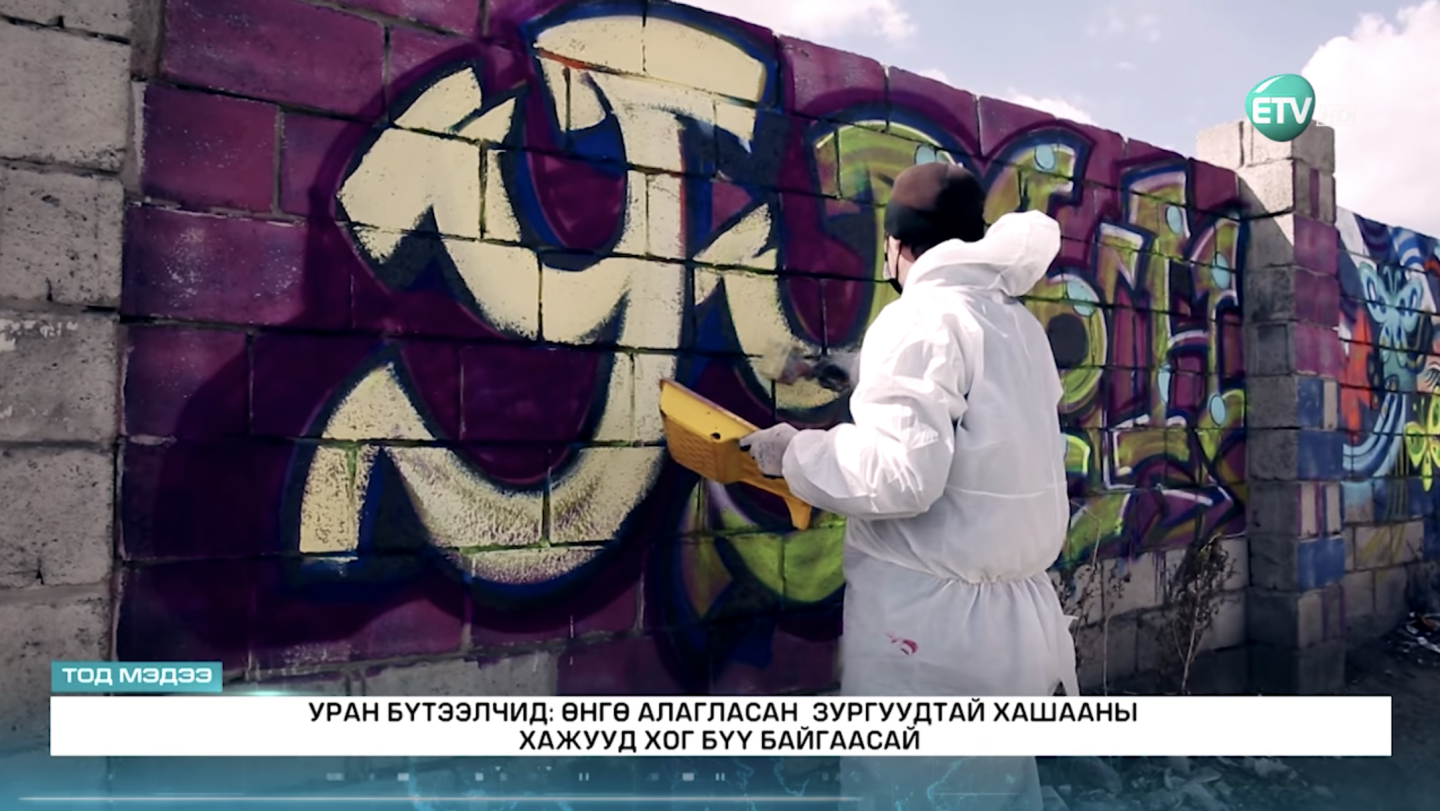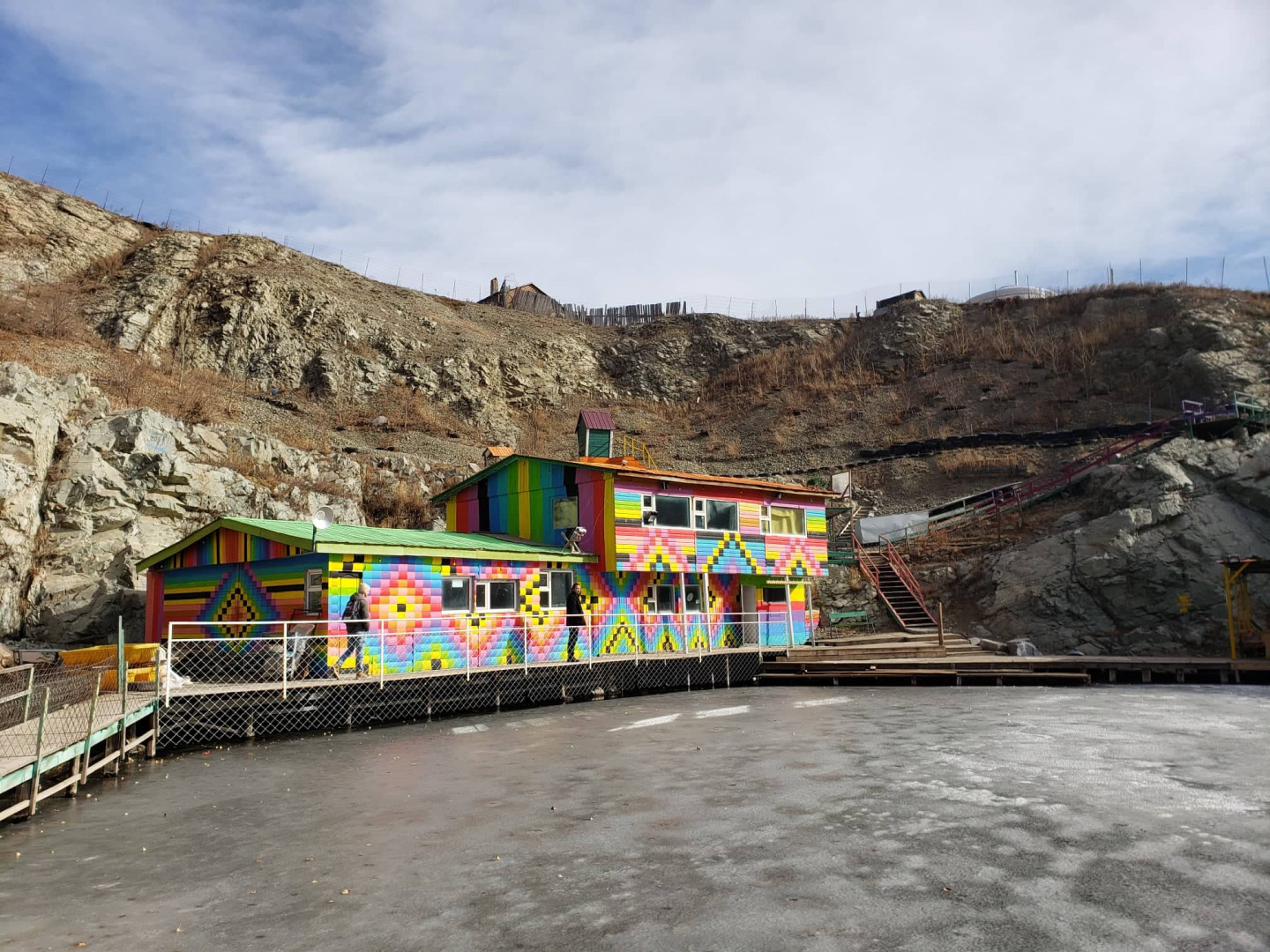Nogoonbaatar Eco Art Festival, the first of its kind in Mongolia, aims to change the critical situation of air pollution in the Ger District, notorious for heavy pollution through coal burning.
Half of Mongolia’s population lives in Ulaanbaatar (Mongolian for "Red Hero"), one of the most polluted capital cities on earth. fine particulate matter accounts for many health disorders and premature deaths, and is a high threat to younger generations. It grows with the expansion of the population and increasing rural-to-urban migration.
Nogoonbaatar ("Green Hero"), the first eco art festival in the country, hopes to change this critical situation. The festival is staged in the Ger District, notorious for heavy pollution through coal burning. Local artists, European artists-in-residence and environmental educators are using a people-to-people approach, developing art projects and events in community centres, schools and public spaces.
All festival activities highlight the effects of air pollution and promote best practices for a more sustainable lifestyle. The goal is to raise awareness about air pollution (indoor and outdoor) and its impacts on health, promote good practices such as prevention and protection methods, and to present cheap or costless solutions to diminish pollution (insulation, ventilation, planting trees, cleaner heating systems and fuels) using the learning by doing method.
The outdoors eco-arts festival, the highlight of the project, was planned for mid-May 2020, with public activities starting in April to lead up to the festival. Immediate and strict measures taken by the Mongolian authorities include travel restrictions and closing of all cultural and languages centres until the start of 2021. They have therefore resorted to organise the festival in Spring 2021, with activities in public spaces taking place mid-April, and other reworked in a digital or hybrid format. The festival's main activities revolve around community centres and co-creation.
Research
Throughout September until early November 2020, the curatorial team organized several trips to the Ger districts to understand the attitudes of the local community, logistics, to find potential places and peo-ple/community to partner with. Some findings:
- Coal distribution points are quite busy and intriguing places;
- Local residents do not easily collaborate, even some are reluctant, to improve their community;
- Local government, public centres and schools were identified as the best partners;
- Ger Hub Community Centre can collaborate with the festival.
Painting competition for school children
One of the festival’s elements is a painting competition among primary school children to hear their voices on the prevention of air pollution. The twenty best graded paintings will be selected, and the pupils will receive a prize. The painting competition, held starting from March 2021, will gain visibility by placing large prints of some of the children’s works at several public areas of the Ger District and in bus stations. It should also lead to increased motiva-tion among teachers at schools to organize more public awareness campaigns, together with school children, using artistic approaches. See below two examples of children’s paintings on the topic of air pollution.
It would be nice if the city where I live is as safe and clean as the countryside.
Illustration workshop and competition “Talking Pictures about air pollution” (March-April 2021)
A 7-day workshop and competition among Art & Design School students on how to develop techniques and ideas to pass their messages on air pollution by creating illustrations on the topic, led by German illustrator Julia Neuhaus. The ten best rated posters/illustration works will be selected and published online.
Public and street art workshops
As a digital residency programme, during March and April 2021 European artists (Seth, France and Jitka Kopejtkova and David Strauzz from the Czech Republic) and 18 Mongolian artists will explore the local context and co-create public and street art. 8 to 10 Mongolian street artists have been selected and received a grant for completing a site-specific art work. The works will be installed at NogoonNuur Public Park and GerHub community for the Public Art days in April.
Public awareness campaign
A number of Nogoonbaatar's activities have addressed directly the general public in frequented spaces and media:
- Make a large print of artworks by school children and place them in bus stations, water and coal distribution points and promote through social media channels
- Post selected illustrations, created by art students, on social media channels
- Organise Public Art Day at NogoonNuur Public Park and GerHub Community Centre
- Live streaming of insulation workshop
- Live streaming of tree planting activities
- News and articles published and broadcasted on newsletters, TV and social media channels
Nogoonbaatar as European Space of Culture
The project convinced the selection committee with its clearly defined local needs, strongly built partnerships, and well argumented understanding of innovation in relations to the local context. It is important that such a burning issue for Mongolia as ecology is being addressed in a way that is not very known to the local context.
The jury agreed that this project can be seen as one of the models for European Spaces of Culture due to its turn to socially engaged art as an environment for knowledge and advocacy, as well as a platform of mutual learning and exchange between different partners. It is clear that the project is built on a thorough research and understanding between the partners.
Model of collaboration
The project turns to socially engaged art as an environment for knowledge and advocacy, as well as a platform of mutual learning and exchange between different partners. The project is built on research and understanding between the partners and appointed a local expert as curator of the festival. EUNIC members provide access to artists with a background in eco art, connect them with Mongolian artists and facilitate knowledge exchange that leads to the festival’s elements’ output. The EU Delegation provides access to state institutes, hosts events and disseminates the project’s activities.



